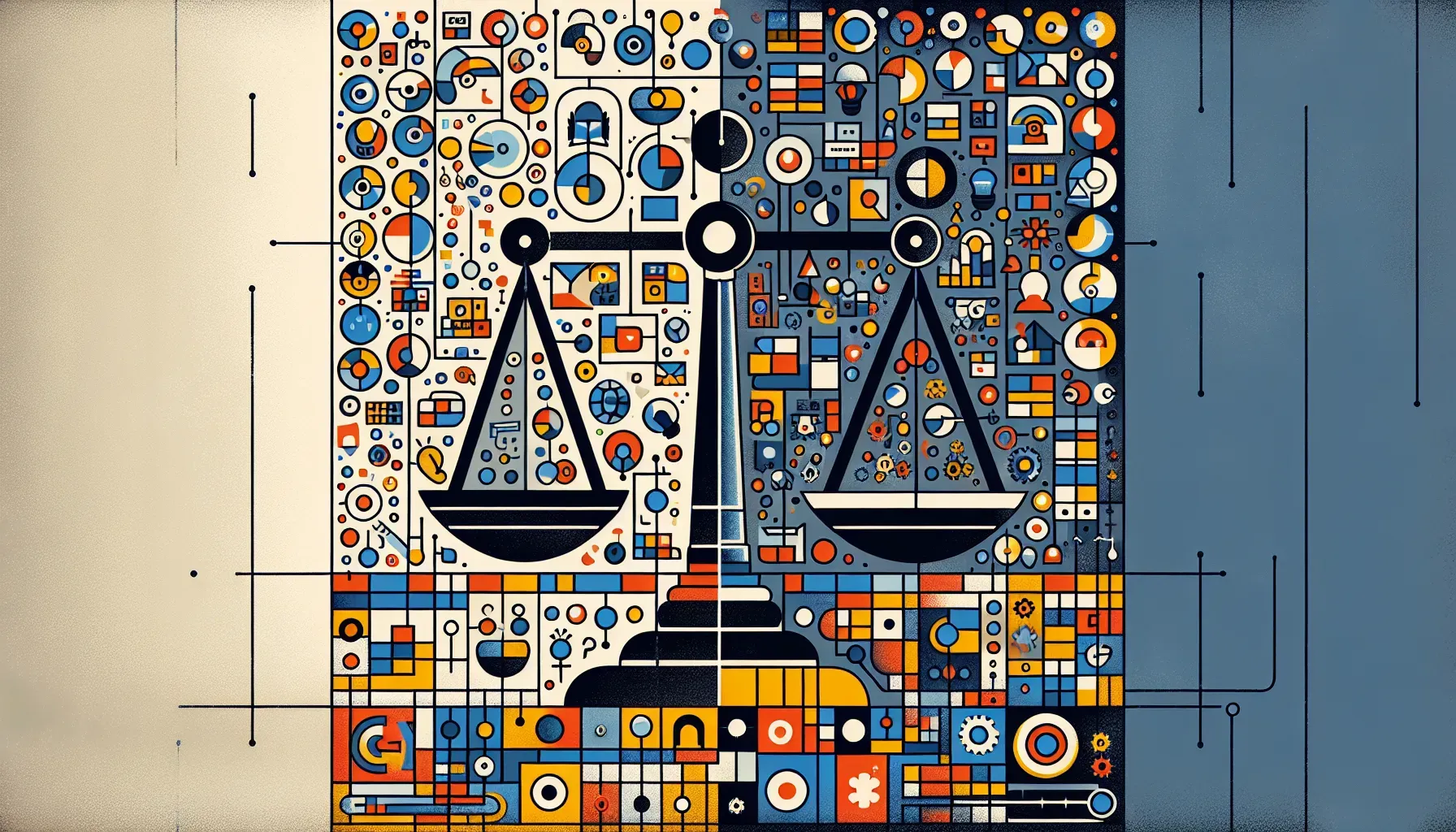The Paradox of User-Generated Content: Balancing Creativity with Copyright Compliance

User-generated content (UGC) has revolutionized digital marketing, offering brands an authentic way to connect with their audience. However, amidst the allure of UGC lies a paradox - the challenge of balancing creative freedom with copyright compliance. As brands harness the power of UGC, it's essential to navigate the legal landscape to avoid infringements while leveraging this invaluable resource.
Harnessing the Power of User-Generated Content (UGC)
UGC encompasses various content forms, from user-created videos and images to product reviews and testimonials. While UGC presents a compelling opportunity for brands to enhance their marketing efforts, it raises intricate copyright considerations. As such, it is crucial for marketers to discern the fine line between leveraging UGC and respecting the intellectual property rights of content creators.
What is User-Generated Content (UGC)?
When integrating UGC into marketing campaigns, brands must obtain explicit consent from content creators. This ensures that the original creators are duly credited and that their intellectual property rights are respected. Integrating this step into the UGC collection process not only safeguards brands from potential legal actions but also fosters trust and transparency within their community.
Educating consumers about intellectual property rights is paramount in fostering ethical UGC practices. By raising awareness about copyright laws and emphasizing the importance of obtaining permission for content usage, brands can empower users to contribute within legal boundaries. Such initiatives not only reinforce a culture of respect for creators' rights but also equip marketers with ethically-sourced UGC.
Related Article: Saga of Societal Values: Ethical Storytelling in Today's Transparent Digital Marketing Landscape
How to Leverage UGC Responsibly
While UGC offers an unparalleled avenue for brand advocacy, marketers must navigate legal obligations prudently to mitigate the risks associated with content ownership and usage rights.
The Importance of Intellectual Property Education
Incorporating precise terms of use when soliciting UGC provides a solid legal foundation for brands. Clearly outlining the rights granted by users when submitting content, along with explicit guidelines for usage, aids in ensuring compliance with copyright laws. By setting forth unambiguous terms, brands can streamline the process of UGC curation while minimizing potential legal disputes.
Related Article: Navigating Ethical Dimensions in Digital Marketing: Diverse Moral Frameworks in Action
Navigating Legal Obligations in UGC Utilization
Implementing robust monitoring and moderation mechanisms allows brands to maintain vigilance over the UGC they solicit. Regular reviews not only facilitate the identification of potential copyright infringements but also enable swift resolution of any concerns. Moreover, these proactive measures demonstrate a commitment to upholding legal standards, further enhancing a brand's credibility and integrity.
Empowering consumers with copyright education not only cultivates a culture of respect for intellectual property rights but also enriches the authenticity and legality of user-generated content across digital platforms.
Establishing Clear Terms of Use for UGC
Engaging in open dialogues with content creators cultivates an environment where mutual respect for intellectual property flourishes. By collaborating on campaigns that prioritize proper attribution and compensation for creators, brands reinforce their commitment to ethical UGC practices while enriching the overall content ecosystem.
Related Article: Data Ethics in AI-Powered Marketing: Ensuring Fairness and Accountability in Algorithms
Implementing Monitoring and Moderation Mechanisms
Acknowledging and rewarding users who adhere to copyright regulations serves as an incentive for ethical content creation. Brands can institute programs that commend compliant contributors, further encouraging others to emulate best practices in generating UGC. This approach not only reinforces positive behavior but also accentuates a brand's dedication to ethical content utilization.
Copyright Education: Fostering Ethical UGC Practices
In navigating the intricacies of leveraging UGC, establishing ethical guidelines for both brands and users is paramount in fostering innovation while upholding legal constraints.
Transparency regarding the scope and nature of content usage rights instills confidence among users contributing UGC. By openly communicating how their content will be utilized and advocating for their rights as creators, brands can foster an environment conducive to unparalleled creativity within legal boundaries.
Related Article: Challenges of Ethics and Responsibility in Global Health Marketing
Collaborating with Content Creators for Ethical Practices
Equipping marketers with comprehensive training on copyright compliance is essential in safeguarding brand reputation while leveraging UGC. Ongoing education concerning fair use principles, licensing requirements, and best practices for obtaining consent fortifies brands against inadvertent infringements, ensuring sustained adherence to ethical content utilization.
Acknowledging Ethical Contributors: Recognition and Rewards
As marketers navigate the burgeoning ecosystem of user-generated content, aligning creative endeavors with copyright compliance is imperative in fostering an ethically sound digital marketing landscape. By championing transparency, upholding legal standards, and empowering both creators and consumers through education, brands can harness the boundless potential of user-generated content while honoring intellectual property rights - thus striking a harmonious balance between creativity and copyright conformity.
Frequently Asked Questions
User-generated content (UGC) includes various forms of content created by users, such as videos, images, and reviews. Copyright compliance is crucial because it ensures that the intellectual property rights of content creators are respected, preventing potential legal issues for brands that utilize UGC in their marketing efforts.
Brands can use UGC responsibly by obtaining explicit consent from content creators before utilizing their work. This practice not only protects brands from legal repercussions but also builds trust with the community by acknowledging and respecting the rights of original creators.
Consistent compliance training for marketers is essential to ensure they understand copyright laws and best practices for using UGC. This ongoing education helps prevent inadvertent infringements, safeguarding the brand's reputation while promoting ethical content utilization in marketing campaigns.
Check Out These Related Articles

Data Privacy in Digital Marketing: Navigating Compliance and Building Trust with Consumers

The Rise of Environmental Consciousness in Digital Marketing: Navigating Sustainable Messaging and Practices

Overcoming Digital Disparities: Strategies for Equitable Access in Digital Marketing Arenas

